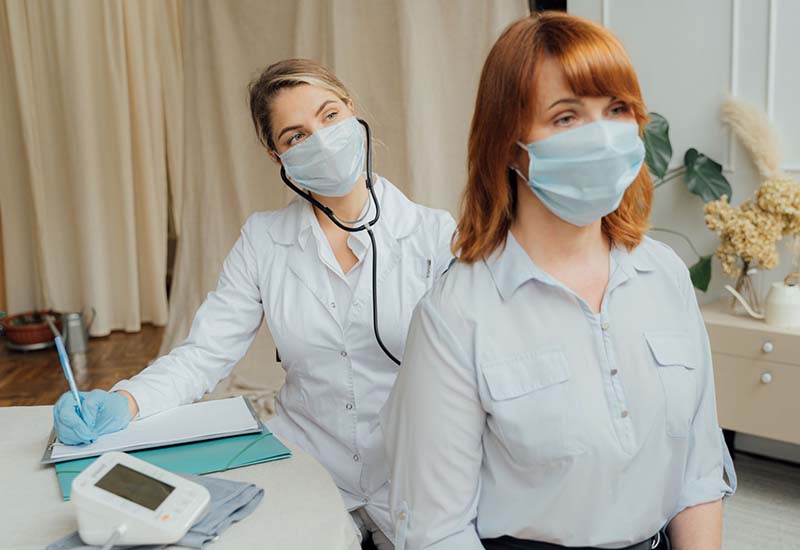Women’s health can be complicated, so there’s no one-size-fits-all solution for all the things that a woman experiences in her lifetime. When it comes to the medical field, females need health specialists to address issues ranging from menstrual cycle problems and birth control advice to pregnancy care and menopause matters. The Royal Australian and New Zealand College of Obstetricians and Gynecologists has five subspecialists training programs for OB-GYNs. Meanwhile, the American College of Obstetrics and Gynecology has identified seven boarded and three non-boarded subspecialties.
So, the sheer range of choices and subspecialties in women’s health can confuse anyone who doesn’t have a medical background or those who are clueless about what obstetricians and gynaecologists do.
The OB-GYN field alone can be divided into three categories: gynecology, obstetrics, and fertility. Under these groupings, you can find a doctor specializing in gynecology oncology, maternal-fetal medicine, reproductive endocrinology, and even complex family planning. Before you look for the right practitioner, it would help to know a bit about this key medical field.
Gynecology
This field specializes in female reproductive health, so its scope encompasses the onset of menstruation up to post-menopause. Anything that deals with the reproductive system, such as the ovaries, uterus, cervix, fallopian tubes, or vagina, fall under the scope of gynecology.
Sometimes, gynecologists also help with female incontinence or urinary problems. The range of this health category is comprehensive. If you live in Victoria, you must find the best gynecologist Melbourne residents trust to treat women’s reproductive health problems.
So, women concerned about their periods, having problems with their reproductive organs, going through menopause, or in need of HPV (Human Papillomavirus) vaccinations, as well as routine breast and pelvic exams should visit a gynecologist.
Indeed, talking about intimate things, especially about what your lady parts are telling you, may be hard to do. But gynecologists have studied reproductive health for years and will provide professional advice on issues like vaginal discharge or itchiness.
Here are other health problems that a gynecologist commonly deals with:
- Menorrhagia or heavy periods
- Irregular menstruations
- Endometriosis
- Vaginal infections
- Vaginal and cervical polyps
- Cancers of the reproductive organs
- Conditions concerning painful intercourse
- Uterine fibroids
- PCOS (polycystic ovarian syndrome)
Obstetrics
Obstetrics is a field that tackles everything involving pregnancy–starting from prenatal care up to the time the baby is born. So, when you need someone who’ll take care of you and your baby during your pregnancy, you need a doctor with a specialization in obstetrics.
Here are some pregnancy complications that obstetricians are trained to deal with:
- Preeclampsia
- Cesarian section delivery
- Premature delivery
- Ectopic pregnancy
- Fetal distress problems
- Placenta Issues
- Postpartum depression and issues
For example, suppose you think you have a high-risk pregnancy or you expect to deliver quintuplets. In that case, you may consider seeking an obstetrician with a maternal-fetal medicine subspecialty or an OB doctor who has trained an additional two or more years to deal with highly complicated pregnancies.
Fertility
OB-GYN practitioners can help women deal with fertility problems. However, if you want a specialist in this field, you should look for OB-GYNs who focus their practice on reproductive endocrinology.
The things you may expect from a fertility appointment include a physical examination and taking down your detailed medical history. You’ll also undergo several lab and fertility tests to ascertain hormone levels and determine the underlying causes of your inability to conceive.
Here are some of the possible fertility therapies that your doctor may suggest during your consultation:
- Assisted reproduction
- Ovulation induction
- Pre-implantation chromosomal or genetic diagnosis
- Intra-uterine insemination
- Advanced endoscopic surgery, which you might need to address underlying conditions that cause infertility.
How To Find The Right Women’s Health Specialist
After identifying which category your health issues fall into, the next step is to find the right specialist to deal with your problems.
Here are tips on how to find the right women’s health specialist for your needs:
1. Consider Your Insurance Coverage
When looking for a women’s health doctor, the first thing you should consider is your insurance coverage. Check out the details of your contract to determine if the company only covers consultation and treatment by affiliated doctors. Your coverage is vital, particularly if you have a condition that requires surgical procedures, such as hysterectomy or a battery of lab tests.
However, if you cannot find an accredited specialist who can help improve your condition, it’s still best to follow your gut and seek other doctors. Don’t let your insurance company hinder you from getting the best doctor for your condition.
2. Check Online
Another good place to look for obstetrics, fertility, or gynecology experts is online. Some health companies offer extensive information about their doctors and the services they offer. That way, you’d be able to see if the doctor or the clinic is perfect for you.
You can check out reviews and testimonials about doctors or health institutions from previous patients. Read them carefully to understand the kind of care you can expect from the doctors and facilities in your checklist.
Reproductive health is a very intimate topic. Language is a crucial factor in helping you and your practitioner understand each other. If you don’t speak English fluently, it would be a plus to find a doctor who can speak your native tongue. By doing so, you and your doctor will have no room for confusion and misunderstanding due to language barriers.
Sometimes, when you search online, you’ll discover specialists who have a solid digital presence. So, suppose you’re a busy person. In that case, a doctor affiliated with a medical institution that offers digital appointment setter and other online services may be preferred over those who you need to call or email to book an appointment.
Sometimes, your health problem can be very personal and private, so it would be tough to ask your friends and family for referrals. In this case, looking for a specialist on the internet is a good option.
3. Ask Around
Word of mouth is still one of the best ways to find the right doctor for you. Ask your friends, colleagues, and family if they can recommend a specialist. Although you can find reviews and testimonials online, referrals by people you personally know are usually more credible.
If you seek an obstetrician, for example, your mother, sister-in-law, or friend can give you a more detailed testimonial about their doctor. You can even ask questions about costs, professionalism, and attitude, which may not be available in online reviews.
4. Consider The Location
Some conditions would require frequent trips to your doctor. For example, if you’re expecting a child, you’ll need to visit your OB several times during the next nine months. Thus, you’ll need to find one that’s easily accessible to you.
For example, it may be good to get someone with a practice in Melbourne and surrounding areas if you live in Melbourne. By doing so, you’ll have an easier time reaching your specialist, especially during emergencies.
5. Determine Availability
Aside from location, another consideration that may affect your decision is the doctor’s availability. The clinical hours of your specialist should coincide with your schedule. Although you can file time off from work when you need to go to your doctor, it would still be beneficial to find one that fits your work schedule, especially if you need to go back for several consultations and appointments.
You want to use your leaves of absence for emergencies. It would be such a waste to use your vacation leave for a doctor’s consult when other specialists can accommodate you during your days off.
6. Listen To Your Gut Feeling
As mentioned above, women’s health can be a very personal and intimate issue. Thus, it would help if you found a specialist to talk openly and share your problems without feeling embarrassed or judged. Remember that your doctor needs to take your medical background and know every symptom, even those you think may be irrelevant. The details are essential to developing the correct diagnosis and appropriate treatment plan.
So, suppose you’re shy or embarrassed to discuss personal concerns, such as pain during intercourse, vaginal discharge, or sexual contact during pregnancy. In that case, you need to find a specialist that would help and encourage you to ask questions and air out your concerns. For example, even if your friends and family highly recommend a male obstetrician, but you feel uncomfortable baring all to a male doctor, then consider finding a female obstetrician. Again, follow your gut feel when it comes to picking the right specialist for you.
7. Get A Second Opinion
If your concern or problem is complicated and will require a long-term treatment plan or invasive surgery, don’t be afraid to seek another opinion. Some diseases are hard to diagnose, so you might need second, third, or even fourth opinions to ascertain your diagnosis and to get the best available options for your problem.
If after you’ve seen two or three specialists and you want to go back to the first doctor you consulted, don’t feel embarrassed. Doctors understand that patients want to be 100% sure about health, particularly when deciding about life-changing surgeries or treatment plans.
Final Thoughts
Finding the right women’s health specialist for your every need can be a challenging feat. Hence, knowing which doctor to approach and consult with can mean the difference between improving your health or succumbing to your condition.







